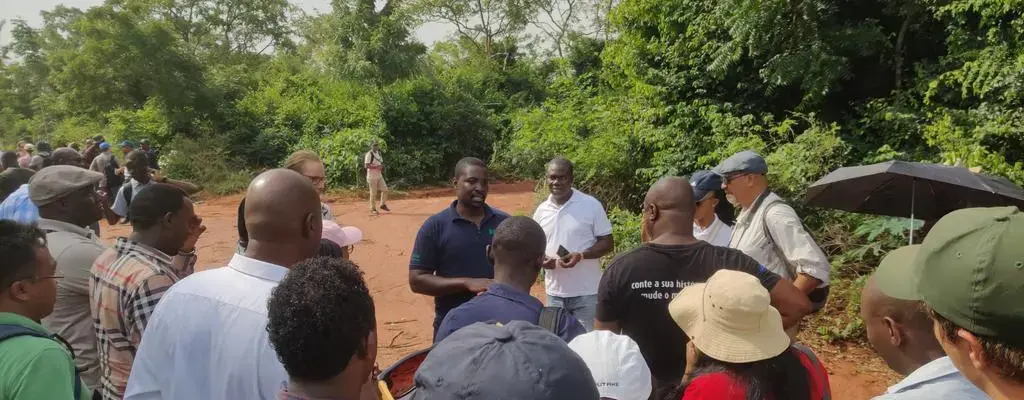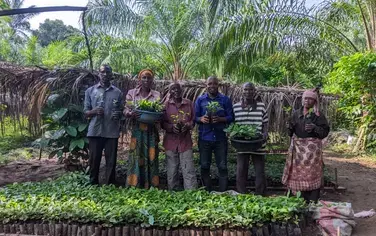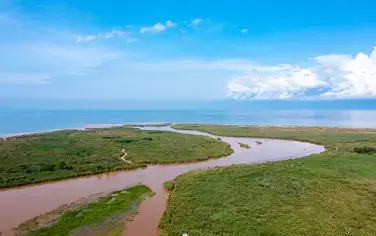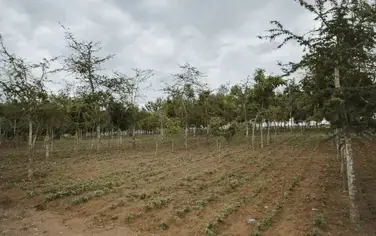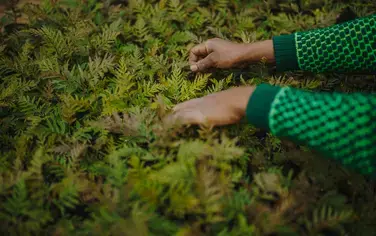The Fourth Annual Partnership Meeting of the African Forest Landscape Restoration (AFR100) that has drawn experts from across Africa started on a high note. Participants travelled with the Forestry Commission of Ghana to learn about its Youth in Agriculture and Afforestation Programme.
AFR100 seeks fair and equitable access to land and forest resources for all relevant stakeholders and promotes the rights of local and indigenous communities, youth and women.
Since its inception, African countries have so far developed a set of common good practices and principles for forest landscape restoration (FLR).
The experts drawn from across Africa and beyond were taken to Achimota Forest, an area that was set aside and preserved in 1930 to help one of the oldest education institutions in the heart of Accra in Ghana.
Forest Commission Regional Manager for Greater Accra Edith Ansah explained that the area initially covered 396 hectares, but due to pressure from a growing population and urbanization part of the reserve has been lost over time.
“Despite challenges faced by the park, we have managed to plant 185 hectares of land with trees. Efforts in planting have pushed the total area with new species to 200 hectares of land since the youth programme commenced in 2018. We work with the youth employment services when implementing these programmes,” Ansah told the visiting participants during her brief.
After Achimota, participants proceeded to visit the Densu basin, which is a water source for residents of greater Accra. Located in Joma in Abelekuma district, Densu is a multi-purpose dam providing a source of potable water to people, irrigation, fishing and water for domestic use for the surrounding communities.
“We are working with the Water Resources Commission to ensure we create a buffer around the basin. These 300 hectares should lay fallow, and this will help the soil to be firm. This will prevent erosion, which leads to siltation, that will reduce the depth of the basin,” she said.
“Three rivers flow into the Densu basin. Ghana Water Company works in partnership with the people to prevent pollution. The water resources commission and company are taking steps to stop further encroachment on the dam,” added Samuel Akutcha, assistant forestry manager, Greater Accra region.
Forestry Advisor in the Ministry of Natural Resources, Energy and Mining of Malawi Clement Chilima hailed the initiatives as a great move.
He suggested that the Densu project could benefit a payment for ecosystems services for the benefits of this project. A small percentage of the monetary benefits received from the project could be given back to the community to motivate them to continue restoring the buffer zone.
“The outputs from the credits would come in the form of development products, such as roads, clinic, schools and other social amenities. In this way they will encourage the communities to see benefits in conserving the area,” advises Chilima.
